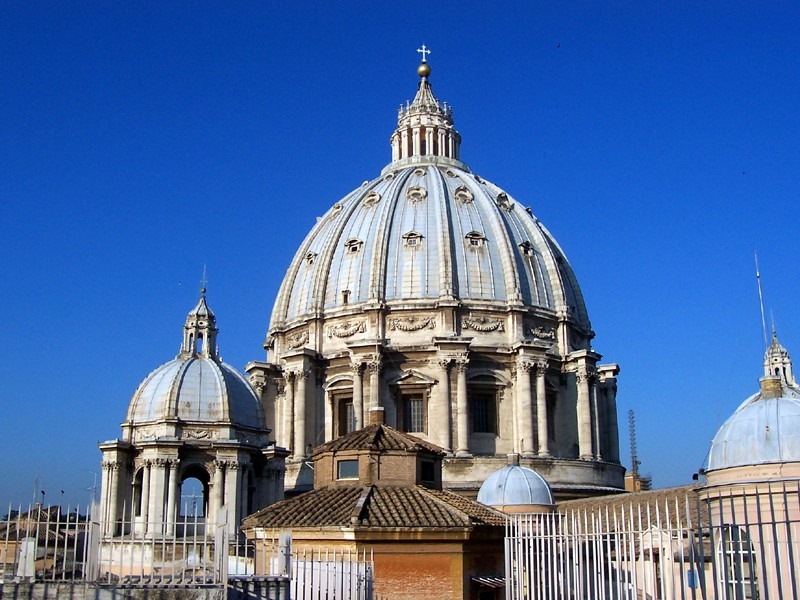Heat cannot be separated from fire, or beauty from The Eternal.
Meaning of the quote
Heat and fire go together, just like beauty and the eternal world. This means that some things in life are connected and can't be separated, even if we try. For example, it's impossible to have fire without heat, or to have true beauty without a connection to something greater than ourselves. The quote suggests that some things in life have a natural bond that can't be broken.

About Dante Alighieri
Dante Alighieri was an influential Italian poet, writer, and philosopher known for his masterpiece, the Divine Comedy. He helped establish the use of the Italian vernacular in literature and is considered a national poet of Italy and one of the greatest literary icons of the Western world.
More quotes from Dante Alighieri
Heat cannot be separated from fire, or beauty from The Eternal.
Florentine poet, writer, and philosopher (c. 1265-1321)
No one thinks of how much blood it costs.
Florentine poet, writer, and philosopher (c. 1265-1321)
A mighty flame followeth a tiny spark.
Florentine poet, writer, and philosopher (c. 1265-1321)
Nature is the art of God.
Florentine poet, writer, and philosopher (c. 1265-1321)
Be as a tower firmly set; Shakes not its top for any blast that blows.
Florentine poet, writer, and philosopher (c. 1265-1321)
In the middle of the journey of our life I came to myself within a dark wood where the straight way was lost.
Florentine poet, writer, and philosopher (c. 1265-1321)
Art, as far as it is able, follows nature, as a pupil imitates his master; thus your art must be, as it were, God’s grandchild.
Florentine poet, writer, and philosopher (c. 1265-1321)
The more perfect a thing is, the more susceptible to good and bad treatment it is.
Florentine poet, writer, and philosopher (c. 1265-1321)
Will cannot be quenched against its will.
Florentine poet, writer, and philosopher (c. 1265-1321)
From a little spark may burst a flame.
Florentine poet, writer, and philosopher (c. 1265-1321)
All hope abandon, ye who enter here!
Florentine poet, writer, and philosopher (c. 1265-1321)
Beauty awakens the soul to act.
Florentine poet, writer, and philosopher (c. 1265-1321)
You shall find out how salt is the taste of another man’s bread, and how hard is the way up and down another man’s stairs.
Florentine poet, writer, and philosopher (c. 1265-1321)
The sad souls of those who lived without blame and without praise.
Florentine poet, writer, and philosopher (c. 1265-1321)
Small projects need much more help than great.
Florentine poet, writer, and philosopher (c. 1265-1321)
If the present world go astray, the cause is in you, in you it is to be sought.
Florentine poet, writer, and philosopher (c. 1265-1321)
The darkest places in hell are reserved for those who maintain their neutrality in times of moral crisis.
Florentine poet, writer, and philosopher (c. 1265-1321)
O conscience, upright and stainless, how bitter a sting to thee is a little fault!
Florentine poet, writer, and philosopher (c. 1265-1321)
Follow your own star!
Florentine poet, writer, and philosopher (c. 1265-1321)
I wept not, so to stone within I grew.
Florentine poet, writer, and philosopher (c. 1265-1321)
The customs and fashions of men change like leaves on the bough, some of which go and others come.
Florentine poet, writer, and philosopher (c. 1265-1321)
There is no greater sorrow than to recall happiness in times of misery.
Florentine poet, writer, and philosopher (c. 1265-1321)
The secret of getting things done is to act!
Florentine poet, writer, and philosopher (c. 1265-1321)
Pride, envy, avarice – these are the sparks have set on fire the hearts of all men.
Florentine poet, writer, and philosopher (c. 1265-1321)
Consider your origins: you were not made to live as brutes, but to follow virtue and knowledge.
Florentine poet, writer, and philosopher (c. 1265-1321)
He listens well who takes notes.
Florentine poet, writer, and philosopher (c. 1265-1321)
I love to doubt as well as know.
Florentine poet, writer, and philosopher (c. 1265-1321)
Heaven wheels above you, displaying to you her eternal glories, and still your eyes are on the ground.
Florentine poet, writer, and philosopher (c. 1265-1321)
Worldly fame is but a breath of wind that blows now this way, and now that, and changes name as it changes direction.
Florentine poet, writer, and philosopher (c. 1265-1321)
Remember tonight… for it is the beginning of always.
Florentine poet, writer, and philosopher (c. 1265-1321)